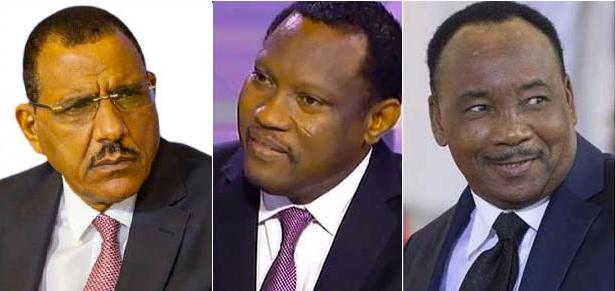Nigér, the US, and jihadist and inter-communal disputes
Published on Friday 13 October 2017 Back to articles
US special forces training Nigér soldiers
Four American and an uncertain number of Nigérien soldiers were killed in an ambush in Nigér on 4 October. According to the authorities, reporting immediately after the attack, five Nigérien soldiers were killed. Some later reports put the number at four, while a statement by US Africa Command (USAFRICOM) on 5 October said that only one ‘partner nation member’ had died.
The signs are that this latest attack was carried out by Abu Walid al-Sahraoui’s EIGS. However, in Nigér, as in Mali, the situation on the ground is often far more complex and nuanced than the simple jihadists against military rhetoric type with the jihadists’ ideology as the source of the problems.
Attacks against military personnel represent only a small part of the problem. As in Mali, armed violence exacts a heavy, albeit under-reported death toll among civilians in the regions of Tillabéri and Tahoua, especially among isolated nomadic communities.
In July 2017 alone, local representatives of the Fulani community — one of the largest ethnic groups in West Africa comprised mostly of pastoralists — claimed that militias of rival ethnic groups (the Tuareg and the nomadic Doosaak) killed around 46 civilians, purportedly as part of counter-terrorism operations. Conversely, Tuareg representatives repeatedly accuse local Fulanis of murdering members of their communities with jihadist support.
In reality, jihadist violence often intertwines with local intercommunal tensions related to competition over natural resources and trafficking, making it difficult to distinguish the real nature and motives of many incidents.
Nigér officials often claim that the perpetrators of these attacks come from neighbouring Mali and especially from the Ménaka Region where jihadist groups are entrenched. There is, however, far more to this than spill over from the Malian crisis. In addition to the above-mentioned intercommunal tensions — which reflect local dynamics in Nigér — most informed sources agree that jihadist groups have taken root in the northern Tillabéri Region, especially but not exclusively among young Fulanis looking for ways to counter their ethnic rivals or protect their businesses or communities.
Ethnic and counter-jihadist agendas mix, at times to highly damaging effect. Authorities suspect Fulani communities in particular of having ties with jihadist groups. In turn, the Nigér government reportedly authorised Mali’s armed Tuareg Imghad and Doosaak groups to hunt jihadist elements; under that pretext, those groups are said to repeatedly have targeted Fulanis from the Tahoua and Tillabéri regions. Fulani representatives reported that they suspect France also provided support to these groups.
Some evidence suggests that the Fulani community in fact have close ties to jihadist groups An International Crisis Group report in 2016 revealed that jihadist groups do tend to recruit among Fulani youth as part of a strategy that aims to capitalise on intercommunal conflicts, local grievances and frustration with the state about bad governance, lack of services, unemployment and corruption.
However, the notion of a ‘Fulani jihad’ in both Nigér and Mali is dangerously misleading. It distracts from the reality that Fulani are often drawn to jihadist groups because of underlying communal tensions, not necessarily out of ideological affinity.
The key problem with this overall dynamic is that it paves the way for Sahelian states — like Nigér whose security apparatus is already overstretched due to threats emanating from Libya in the north and Nigeria’s Boko Haram in the south east — to enlist ethnic-based militias as proxy counter-terrorism forces. This in turn risks aggravating intercommunal tensions and thus, in a vicious cycle, encouraging greater numbers of young Fulani to seek protection from jihadist groups. Such groups adapt accordingly, forging relations with local rural and semi nomadic communities based on matrimony, business ties or the provision of protection and dispute resolution mechanisms to marginalised communities.
This article was taken from our monthly Sahara Focus publication. If you wish to discuss the content of this article, or have any other questions in regards to Nigér or the Sahel region then please contact us.



